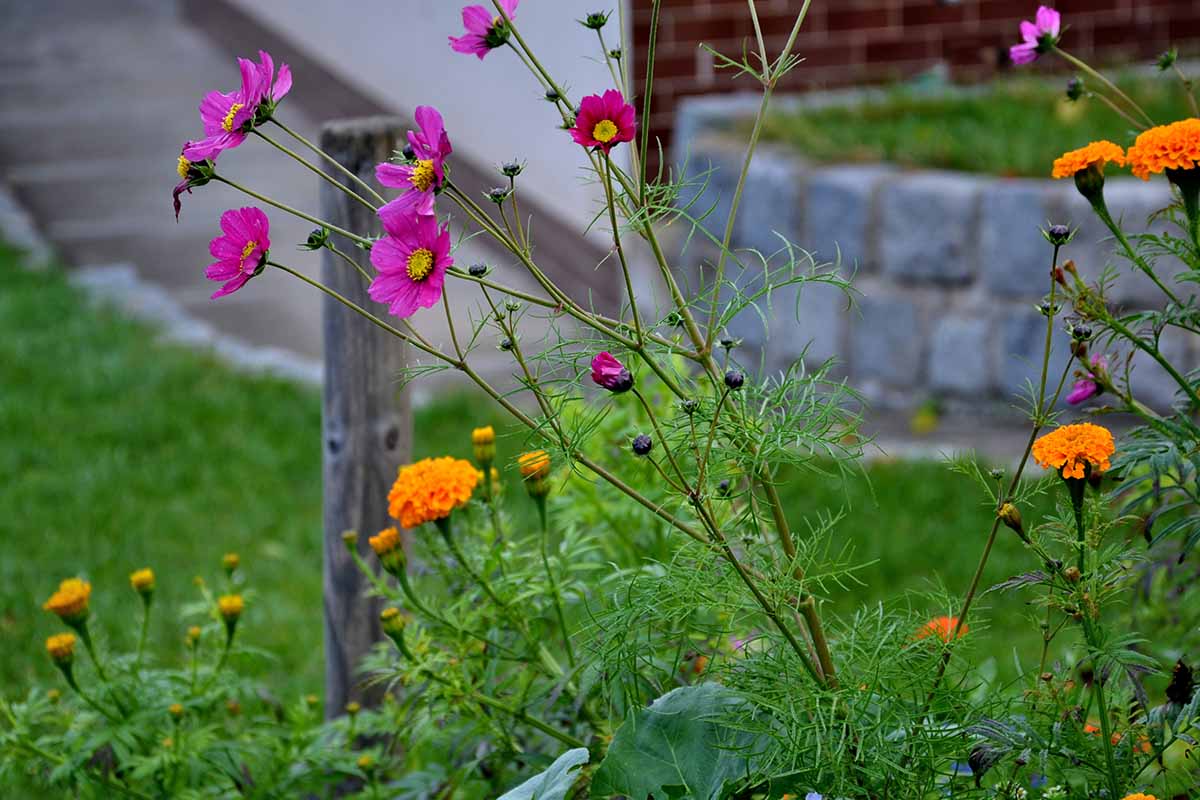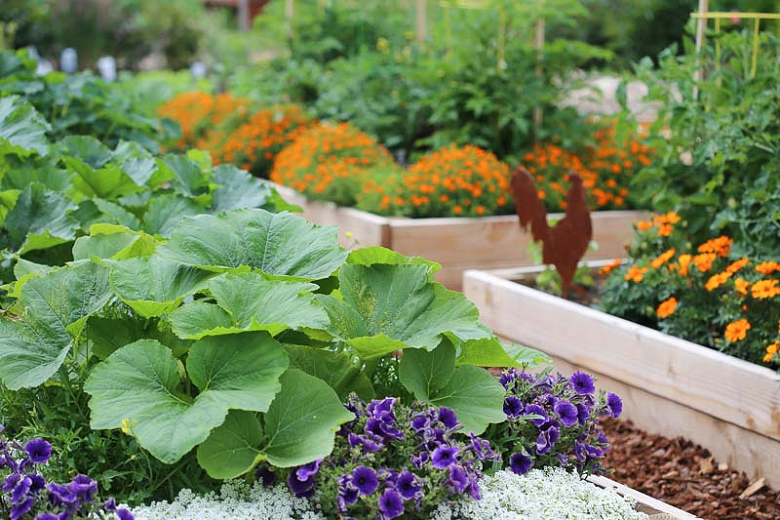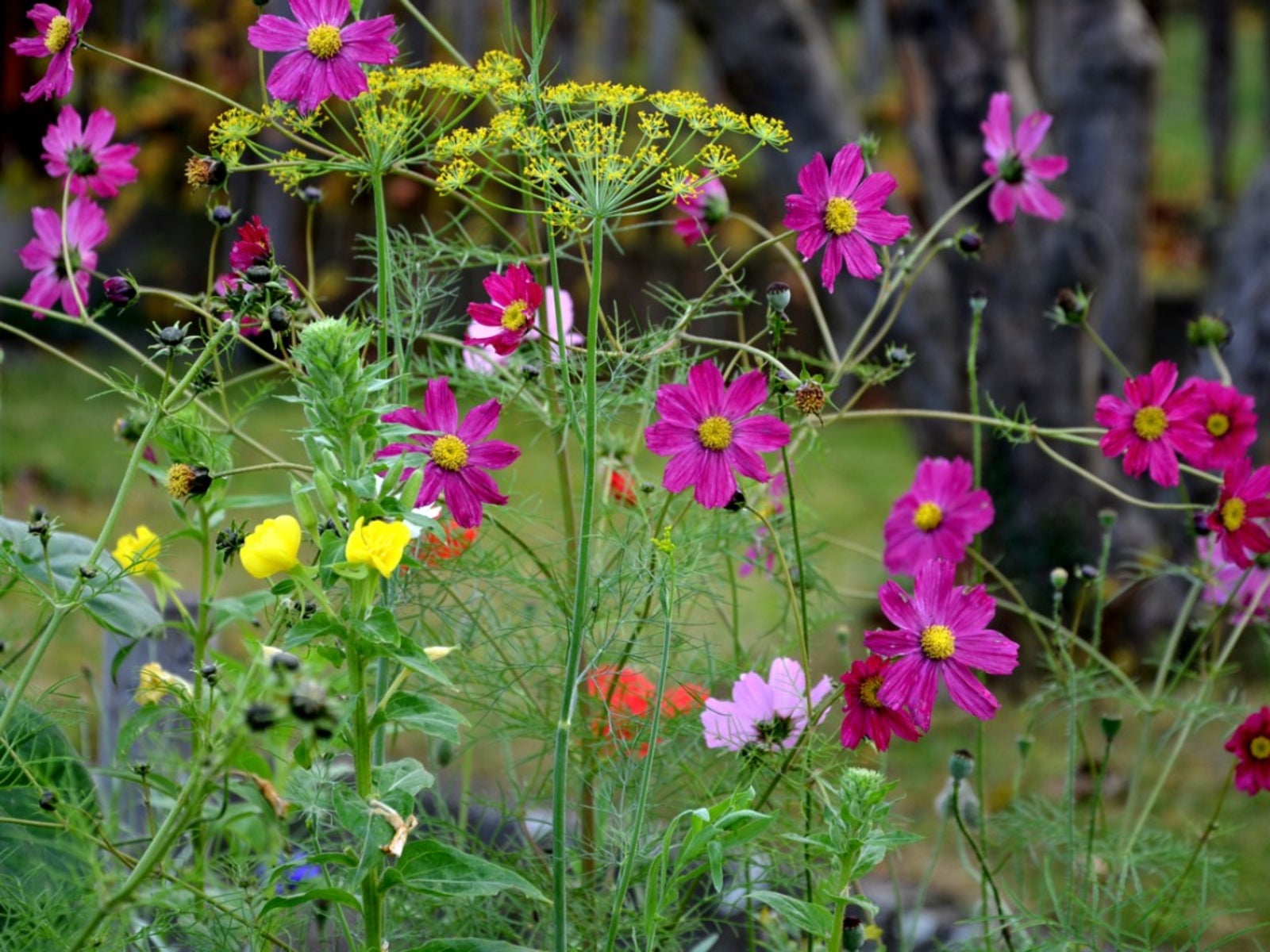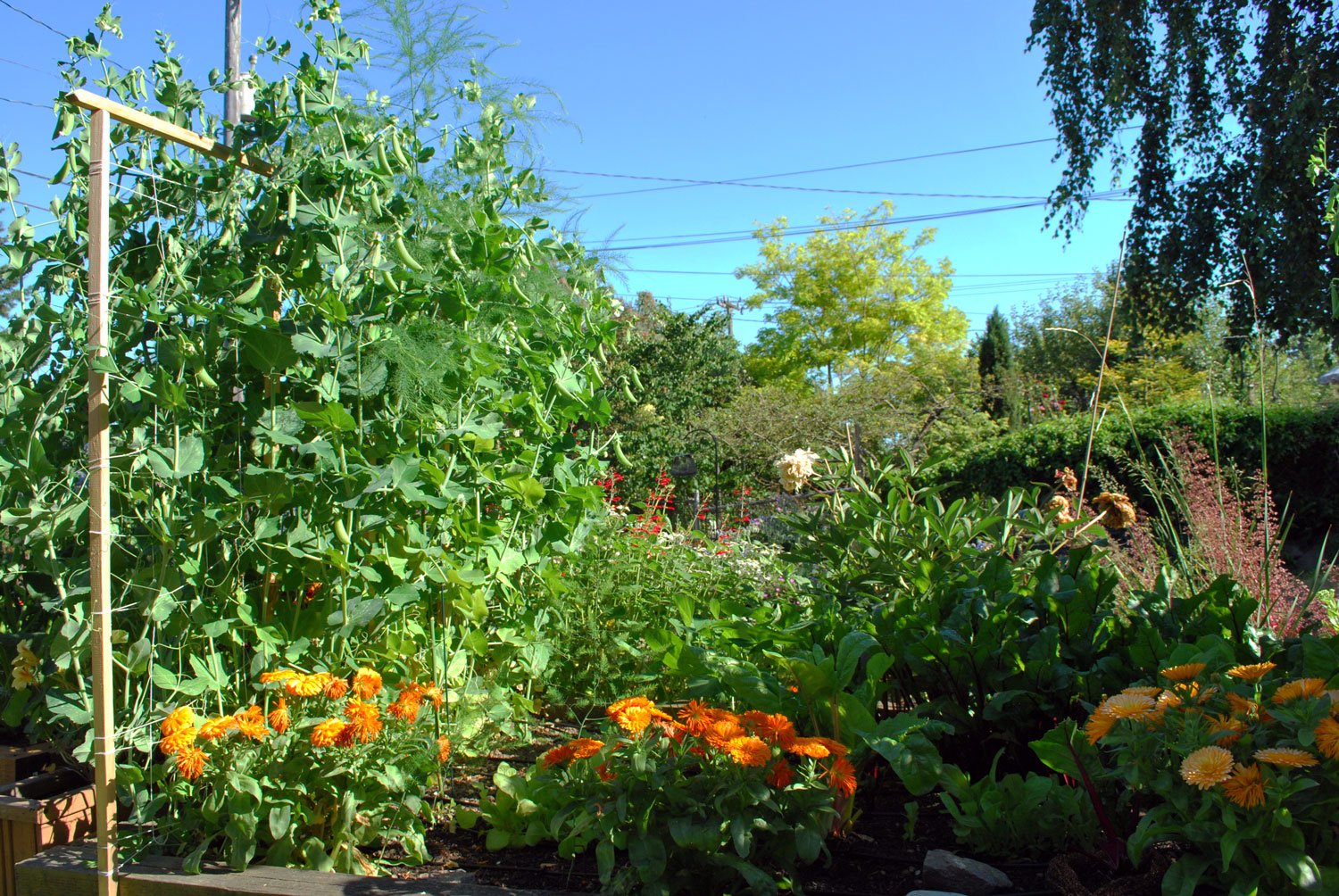Cosmos Companion Plants: The Best Vegetables To Grow Together
Title: Cosmos Companion Plants: The Best Vegetables to Grow Together
Introduction:
Cosmos are beautiful, easy-to-grow annuals that can add a touch of elegance to any garden. They come in a wide variety of colors, from white and pink to yellow and red. Cosmos are also relatively pest- and disease-resistant, making them a low-maintenance choice for gardeners of all levels.
In addition to their beauty, cosmos also have some practical benefits. They attract pollinators, such as bees and butterflies, which can help to improve the pollination of other plants in your garden. Cosmos also help to suppress weeds by shading the soil and competing with them for nutrients.
One of the best things about cosmos is that they can be grown alongside a variety of other vegetables. In this blog post, we will discuss some of the best vegetables to grow with cosmos.
Main Content:
Tomatoes: Tomatoes and cosmos are a classic companion planting combination. Cosmos attract pollinators, which help to increase tomato yields. Tomatoes also benefit from the shade provided by cosmos, which can help to prevent them from sunburning.
Beans: Beans and cosmos are another great companion planting combination. Beans fix nitrogen in the soil, which can help to improve the growth of cosmos. Cosmos also help to suppress weeds, which can compete with beans for nutrients.
Peas: Peas and cosmos are also a good companion planting combination. Peas fix nitrogen in the soil, which can help to improve the growth of cosmos. Cosmos also help to deter pests, such as aphids, from peas.
Carrots: Carrots and cosmos are a good companion planting combination because they have different root systems. Carrots have a taproot, which grows straight down, while cosmos have a fibrous root system, which spreads out horizontally. This means that the two plants will not compete for resources.
Cucumbers: Cucumbers and cosmos are a good companion planting combination because they have similar growing requirements. Both plants need full sun and well-drained soil. Cosmos can help to deter pests, such as cucumber beetles, from cucumbers.
Eggplants: Eggplants and cosmos are a good companion planting combination because they have different water needs. Eggplants need more water than cosmos, so cosmos can help to prevent the eggplants from getting too wet. Cosmos can also help to attract pollinators, which can help to increase eggplant yields.
Melons: Melons and cosmos are a good companion planting combination because they have similar growing requirements. Both plants need full sun and well-drained soil. Cosmos can help to deter pests, such as squash bugs, from melons.
Potatoes: Potatoes and cosmos are a good companion planting combination because they have different water needs. Potatoes need more water than cosmos, so cosmos can help to prevent the potatoes from getting too wet. Cosmos can also help to attract pollinators, which can help to increase potato yields.
Conclusion:
Cosmos are versatile plants that can be grown alongside a variety of vegetables. By choosing the right companion plants, you can help to improve the growth and yields of your vegetables.
Cosmos are beautiful annual flowers that can add a pop of color to any garden. They are also beneficial companion plants for vegetables, as they attract pollinators and repel pests. Some of the best vegetable companions for cosmos include tomatoes, beets, poppies, verbena, and cleome.
To learn more about which vegetables grow well with cosmos, visit Home Gardening.
Image of cosmos companion plants vegetables
10 different images of cosmos companion plants vegetables that are free to use:
- Cosmos and marigolds: These two plants are both native to Mexico and have similar flower shapes and sizes. They attract beneficial insects, such as ladybugs and lacewings, which help to control pests.

- Cosmos and beans: Beans fix nitrogen in the soil, which benefits the cosmos. Cosmos also helps to suppress weeds.

- Cosmos and tomatoes: Cosmos help to deter tomato hornworms, a common pest of tomatoes.

- Cosmos and cucumbers: Cosmos help to attract pollinators, such as bees and butterflies, which help to pollinate the cucumbers.

- Cosmos and carrots: Cosmos help to repel carrot flies, a common pest of carrots.

- Cosmos and potatoes: Cosmos help to attract parasitic wasps, which help to control potato beetles.
- Cosmos and squash: Cosmos help to attract hoverflies, which help to control squash bugs.

- Cosmos and sunflowers: These two tall plants can be planted together to create a stunning border or backdrop in the garden.

- Cosmos and herbs: Cosmos can be planted with herbs such as basil, mint, and rosemary to deter pests and attract beneficial insects.

- Cosmos and lettuce: Cosmos help to shade the lettuce, which helps to keep it cool and prevent it from bolting.
Post a Comment for "Cosmos Companion Plants: The Best Vegetables To Grow Together"